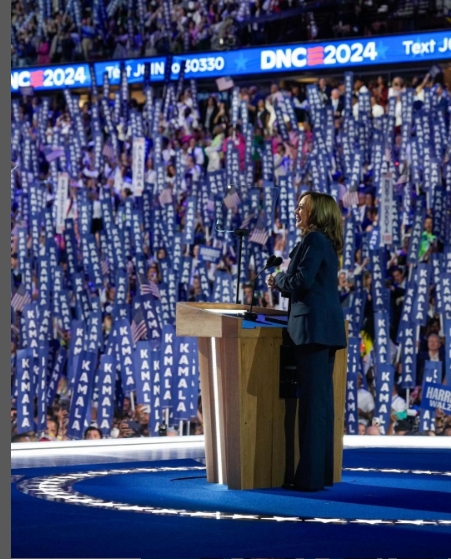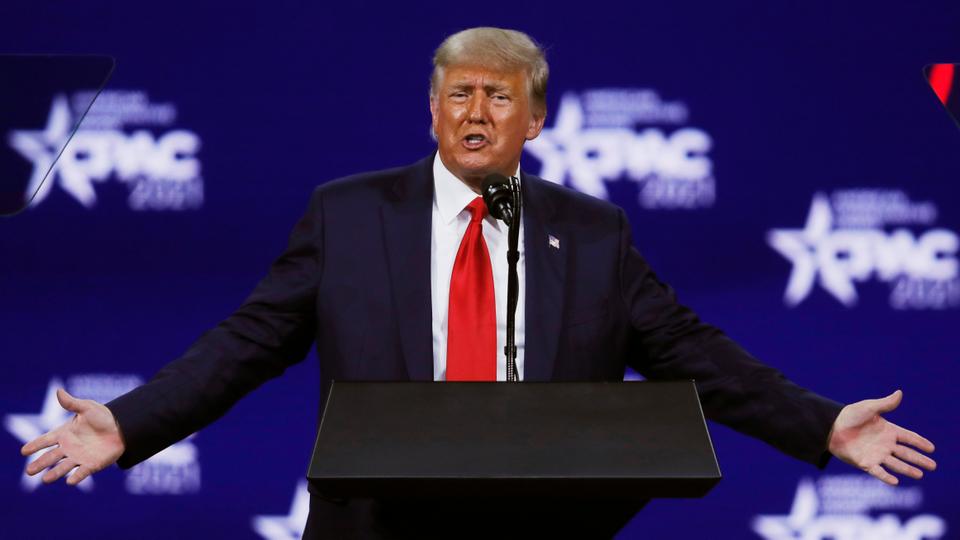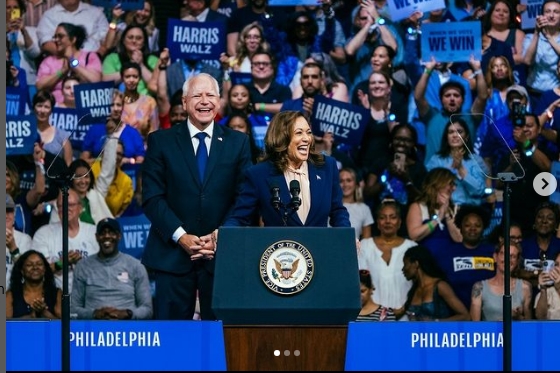 In a highly anticipated debate between Kamala Harris and Donald Trump, the stage was set for a clash that would test the policies, character, and resolve of both candidates. Kamala Harris, the current Vice President, was poised to prove her capability as a leader, while Trump, a former President, sought to reaffirm his standing as a political force. What unfolded was a contest that highlighted their ideological differences, tested their political strategies, and offered American voters a glimpse of what’s truly at stake on the ballot.
In a highly anticipated debate between Kamala Harris and Donald Trump, the stage was set for a clash that would test the policies, character, and resolve of both candidates. Kamala Harris, the current Vice President, was poised to prove her capability as a leader, while Trump, a former President, sought to reaffirm his standing as a political force. What unfolded was a contest that highlighted their ideological differences, tested their political strategies, and offered American voters a glimpse of what’s truly at stake on the ballot.
Kamala Harris approached the debate with composure and clarity, positioning herself as the leader capable of healing the nation’s divisions. Her rhetoric was deeply rooted in the values of empathy, integrity, and forward-thinking policies that aim to address the challenges of everyday Americans. She was sharp in her critique of Trump’s tenure and policy failures, particularly in areas such as healthcare, climate change, and immigration. Harris emphasized her administration’s commitment to working families, climate action, and racial justice, framing her policies as not just beneficial for the left but for the entire American electorate. This approach resonated with independent voters who seek pragmatic solutions over partisan rhetoric. Her tone was measured, but her passion was evident, especially when discussing social justice and economic equity.
On the issue of healthcare, Harris reinforced her stance on strengthening the Affordable Care Act and ensuring healthcare access for all Americans. She fact-checked Trump’s claims about his record on healthcare, pointing out his administration’s numerous attempts to dismantle protections for pre-existing conditions. She leaned into the current administration’s achievements, such as capping insulin prices and expanding healthcare access,

contrasting them with Trump’s repeal efforts. This resonated with new voters and those concerned with rising healthcare costs, particularly in the wake of the pandemic.
Trump, on the other hand, leaned into familiar territory, repeating his attacks on “radical Democrats” and what he termed the “socialist” agenda of Harris and her party. He criticized Harris for her support of climate policies, framing them as job-killers for industries like oil and coal. However, Harris deftly turned this around, highlighting her administration’s investments in green jobs and renewable energy, painting a future where economic growth and environmental sustainability go hand in hand. She connected this vision to the future of the American economy, appealing directly to younger voters and those concerned about climate change, a growing demographic in the electorate.
On immigration, Harris stood firm on the necessity of humane and comprehensive reform, contrasting it with Trump’s controversial policies of family separation and the border wall. Trump, in typical fashion, doubled down on his hardline stance, aiming to rally his base with rhetoric that played on fears of an “invasion.” Yet, Harris, aware of the importance of appealing to moderates and independents, articulated the need for both border security and compassion, framing it as a balanced, American solution. Her nuanced take likely appealed to a broader audience, including first-generation Americans and those who see immigration as a strength rather than a threat.
Perhaps the most telling moments of the debate came when Trump appeared rattled by Harris’s sharp rebukes. When pressed on his past comments about women, race, and his chaotic handling of the pandemic, Trump resorted to deflection and what Harris calmly labeled “the politics of fear and division.” Her ability to remain composed, even in the face of Trump’s inflammatory rhetoric, showcased her steadiness under pressure, a trait that many Americans, especially undecided voters, are looking for in their next leader.
The debate also revealed the stark contrast in leadership style between the two. Harris’s approach was grounded in facts, policy-driven solutions, and a vision for a unified future. She did not just appeal to the Democratic base but also to those on the right who are disillusioned with Trump’s rhetoric. Her measured responses on issues like the economy and foreign policy, especially in regard to America’s alliances, demonstrated her readiness to lead. For voters tired of Trump’s combative, sometimes erratic, style, Harris’s calm and clear articulation of her policies was a refreshing contrast.
On the justice front, Harris’s tenure as a former prosecutor and her leadership on issues like police reform and criminal justice resonated with voters concerned about law and order. Trump, attempting to paint her as anti-police, found his claims falling flat as Harris skillfully outlined her work on bipartisan police reform and her commitment to both public safety and accountability.
Ultimately, Harris left the debate showing that she is more than ready to lead. Her ability to appeal to a broad coalition—Gen Z, new voters, women, minorities, and independents—was evident. She did not shy away from addressing the deep divisions in the country but instead presented herself as the candidate capable of bridging them. Trump, while playing to his base, struggled to move beyond his usual talking points, and his reliance on personal attacks and unfounded claims did little to persuade those on the fence.
What’s on the ballot this election is not just a choice between two candidates, but between two visions for America’s future. For Kamala Harris, it is a future where healthcare is accessible, the climate crisis is addressed, and justice is delivered fairly and equitably. It is a future where unity and decency guide leadership, and where America reclaims its standing on the global stage. For Trump, it’s a return to the politics of grievance, division, and a playbook that has, in many ways, exhausted the electorate.
As voters head to the polls, particularly independents and new voters, they are looking for leadership that speaks to their concerns: healthcare, climate, justice, and a secure economy. Kamala Harris has made a compelling case that she is the leader who can deliver on these priorities, while Trump continues to double down on his divisive rhetoric. This debate solidified Harris as not just a viable candidate but a president in waiting, one who understands the moment and the mandate needed to lead the country forward.
By : Jide Adesina


